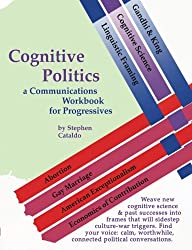Robert Reich looks at why there is no revolution or massive progressive reform in the US. I think this is a great list of large, systemic problems weighted against active progressive politics. But it's also missing what we're missing: chickening out on describing where liberals are failing when we could perhaps be succeeding.
What's Left Out:
Economic elites win when they create a sense of separation between ordinary people. We no longer divide according to "all politics is local," where we fight for our district, or for our economic class. Instead we separate by our psychology into groups that feel good together. One of the biggest issues has been the success of conservatives in pulling the proud, working poor into their camp: Democrats do not give underpaid workers dignity in our rhetoric.
The left used to proclaim that "all value is created by labor," and now we proclaim that Walmart workers are abused and mistreated -- it's economically true, but sounds like we're talking about a sad puppy. The Republicans offer these people pride and hope: "I believe you are strong enough to succeed without charity." Working people -- who do the real tasks we most need done -- have pride, and the Republicans have offered them pride (even as their policies guarantee workers will be deeply underpaid) while the Democrats have offered them pity (and a somewhat better paycheck). We need to recognize the value of core work (making stuff, not shifting stocks) and demand that real working people are paid fairly, rather than offered aid. Walmart workers are underpaid for working hard: when we want to rectify that they don't receive a fair day's pay for a fair day's work it is about preventing theft, not about charity.
Democrats should:
- Encourage a strong message from the left Workers Create All Wealth to widen the window. Point out this philosophy as the opposite to the Republican's desire to pay desperate, hard-working people only desperation wages, then take the middle of the window paying doctors and CEOs more, but not so vastly more, than lower-skilled workers.
- Never mix the values of empathy and fairness. We can also promote empathic policies: someone who cannot contribute their fair share in our world still gets a roof over their head and medical care... but this charitable desire has nothing to do with why a Walmart worker or a farmer who picks the strawberries you have on your table deserves a fair day's pay. Don't talk about welfare and fair pay in the same conversations.
- Focus on the value of core needs, the pride people should feel for doing real work: food on our tables, teachers for our kids.
